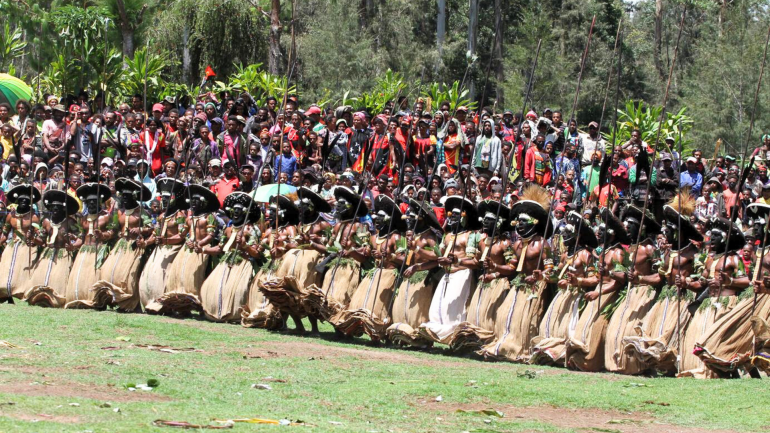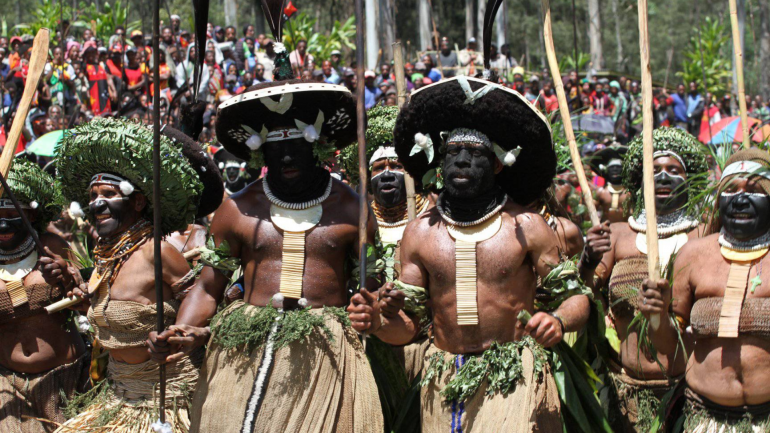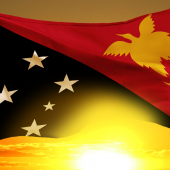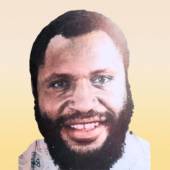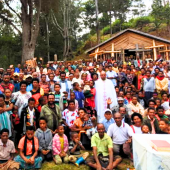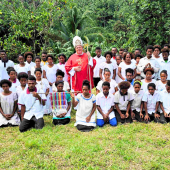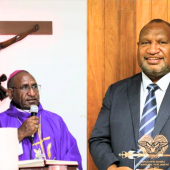PNG: Wanepap to host 2025 Sangai Festival of Peace and Heritage
Under the sweeping highland skies of Papua New Guinea’s Lagaip Valley, the Wanepap Catholic Mission will host the highly anticipated Lagaip Sangai Festival 2025 — a vibrant celebration of culture, faith, and community healing on July 25 and 26.
With over 10,000 people expected to attend, this two-day festival is not merely a cultural showcase but a profound act of remembrance, unity, and spiritual renewal.
The Sangai Festival — from the Engan word Sangai, meaning "to gather in peace and ceremony"—represents" a revived tradition born of ancestral wisdom and enriched by Catholic spirituality. Spearheaded by Mr. Tony Nena Sulupin, the Wanepap Catholic Laity, and pastoral leaders, the event will be the sixth official revival after decades of silence caused by colonial and modern disruptions.
The venue, Wanepap Catholic Mission Station, symbolizes the fusion of faith and culture — where ancestral spirits and the Holy Spirit walk together.
Festival Highlights
1. Traditional Sing-Sings
Cultural groups from across Lagaip will perform powerful sing-sings — tribal dances and chants reflecting their unique histories. Expect feathered headdresses, pig-tusk necklaces, and rhythms that echo the voices of the ancestors.
2. Ritual Pig Killing and Mumu Feasting
A sacred dawn ritual will see pigs ceremonially slaughtered and shared in a communal meal — an ancient act of peace and unity.
3. Kundu and Garamut Drumming
Traditional drums will awaken ancestral memories in a special segment titled "Kone Tenei—Voices of the Stones," honoring lives lost in tribal conflicts and inviting reconciliation.
4. The Storytellers’ Circle
Elders will share oral histories beneath a mango tree, passing stories of the Lagaip Valley to children, visitors, and future generations.
5. Catholic–Traditional Integration Mass
A unique Mass blending traditional offerings, local instruments, and Catholic liturgy will express unity in faith and culture, celebrated by the parish priest of Wanepap under the Wabag Diocese.
Recently, Lagaip has endured tribal conflicts and social unrest. The Sangai Festival emerges as a peace-building initiative, with divided clans agreeing to participate side by side. Through prayers, ritual feasts, and song, the festival seeks to restore community bonds.
The Wanepap Parish Peace Ministry and local chiefs have been instrumental in this reconciliation effort.
Students from Wanepap Primary School, St. Mary’s Secondary, and other nearby schools will engage in workshops on bilum weaving, traditional instruments, and oral history documentation. The festival is shaping the next generation’s identity and pride.
A Grade 9 student, Ambai Sundi, shares, “We scroll TikTok and wear uniforms, but when I wear bilas and dance, I feel my ancestors with me. Sangai teaches us who we are.”
The role of Engan women will be celebrated through a Mothers’ Sing-Sing, bilum parades, and a workshop led by local herbalist Monex on traditional medicine and sacred feminine knowledge. Catholic women’s groups will host sessions on dignity, leadership, and self-worth.
Endorsed by PNG’s National Cultural Commission and Tourism Promotion Authority, the Sangai Festival is attracting international interest from scholars, missionaries, and cultural tourists. A Sangai Marketplace will support local artisans, performers, and caterers, boosting the local economy.
On July 26, the festival will conclude with a torch-lit procession, community prayers, and the unveiling of the Sangai Monument — a sacred stone inscribed with "Wanepap: Wok Bilong Sanap Wantaim" ("Standing Together").
This act marks a new beginning — a cultural renaissance and a call to healing, identity, and spiritual wholeness for the people of Enga.
As the elders said, “Sambe Yandamuni tangapenei—the spirit of the ancestors is not dead. It waits for us in the drumbeat, in the story, in the dance.”
Radio Veritas Asia (RVA), a media platform of the Catholic Church, aims to share Christ. RVA started in 1969 as a continental Catholic radio station to serve Asian countries in their respective local language, thus earning the tag “the Voice of Asian Christianity.” Responding to the emerging context, RVA embraced media platforms to connect with the global Asian audience via its 21 language websites and various social media platforms.





